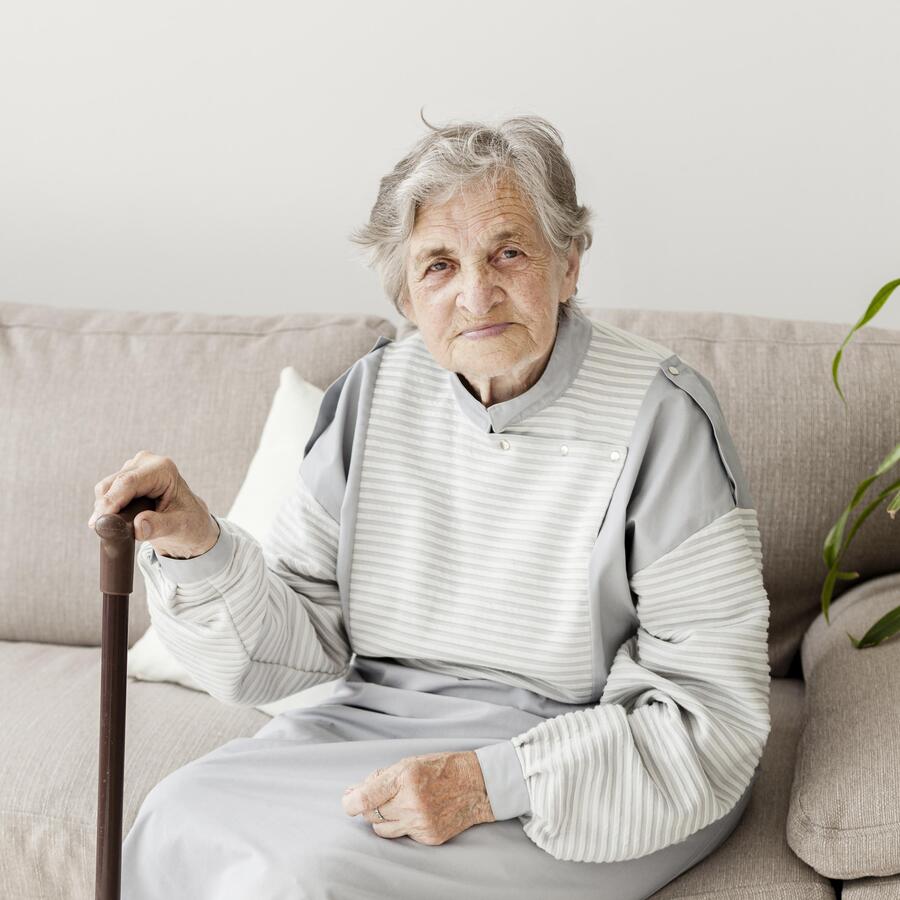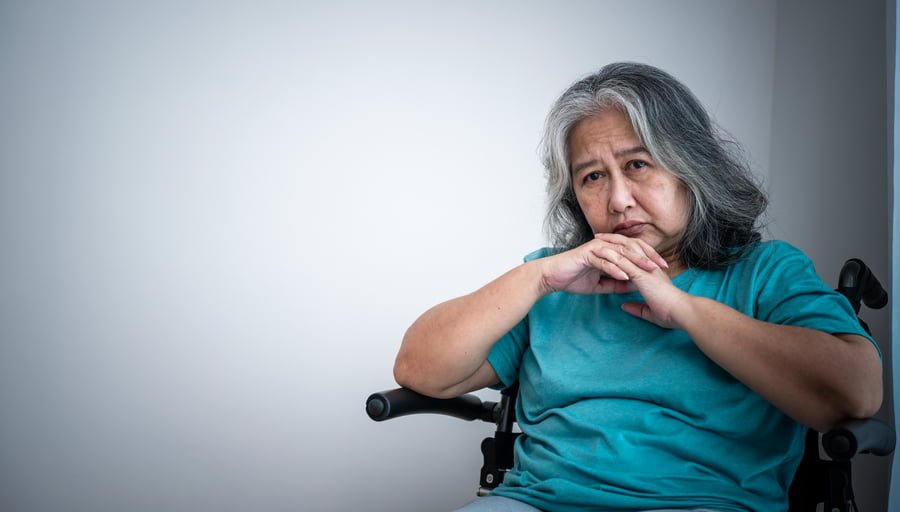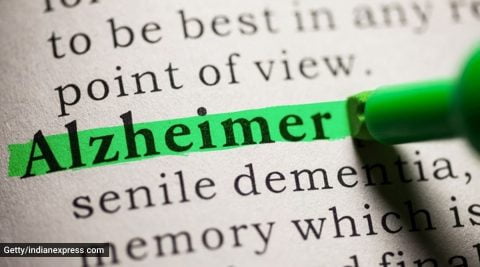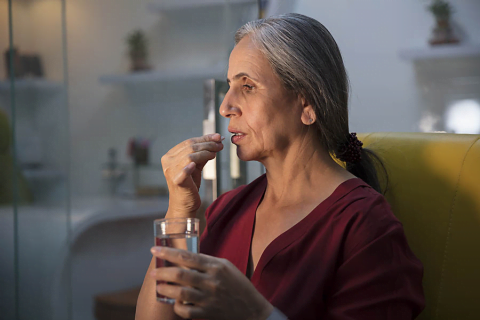Medically Reviewed by:
Dr Sarah has worked as a medical advisor with a total 10 years of experience in the pharma and clinical setting with wide exposure in clinical research and medical affairs.
Have you ever wondered why some memories stick with us, like cherished treasures, while others seem to slip away like sand through our fingers? The intricate workings of the human brain are truly awe-inspiring. But as we gracefully age, our brains may face certain challenges that can have a profound impact on our lives. Today, we delve into the world of Alzheimer’s and dementia, specifically focusing on the unique challenges faced by senior women.
Alzheimer’s and dementia are conditions that affect millions of people worldwide. However, it’s important to recognize that these neurological disorders can manifest differently in women compared to men.

| Did you know? Studies have shown that women are more likely to develop Alzheimer’s disease than their male counterparts. This gender disparity has sparked curiosity among researchers and raised vital questions about the underlying mechanisms at play. |
As we embark on this journey together, let us explore the early signs and symptoms of dementia in women, understand the specific challenges they may encounter, and discover strategies to help mitigate these difficulties. Through knowledge and understanding, we can empower ourselves and our loved ones to navigate this uncharted territory with grace, resilience, and compassion.
In this blog post, we will dive into the unique challenges faced by senior women living with Alzheimer’s and dementia. We will explore how these conditions affect their daily lives, relationships, and overall well-being. Together, let’s uncover the insights and resources necessary to support women throughout their journey with these neurological disorders.
So without further ado, let us embark on this enlightening exploration into the challenges of Alzheimer’s and dementia for senior women. Join us as we shed light on this important topic and offer guidance for those navigating through the complexities of these conditions.

The challenges of Alzheimer’s and Dementia for senior women
As we age, our bodies and minds go through various changes. One of the most common neurological conditions that affect seniors is Alzheimer’s disease and dementia. While these conditions can impact both men and women, today we will focus on the unique challenges faced by senior women.
1. The Impact on Relationships and Family Dynamics
When a senior woman develops Alzheimer’s or dementia, it can have a profound effect on her relationships and family dynamics. As these conditions progress, memory loss, confusion, and personality changes become more prominent. This can strain relationships with spouses, children, and grandchildren. It becomes increasingly difficult for family members to see their loved ones transform into someone they no longer recognize.
2. Increased Vulnerability
Women are more likely than men to develop Alzheimer’s or dementia. In fact, two-thirds of individuals living with Alzheimer’s are women. Hormonal changes during menopause have been linked to an increased risk of developing these conditions. Additionally, women tend to live longer than men, which means they have a greater chance of experiencing age-related cognitive decline.
3. Caregiver Role Reversal
Traditionally, women have often taken on caregiving roles within their families. However, when a woman develops Alzheimer’s or dementia, this dynamic can drastically change. The responsibility of caring for their ageing mother or grandmother may fall onto their children or other family members instead. This role reversal can be emotionally challenging for both the woman with the condition and her loved ones.
4. Unique Symptoms and Challenges
While both men and women experience similar symptoms of Alzheimer’s and dementia, there are some unique challenges that senior women face. For example, studies have shown that women tend to experience more pronounced memory loss compared to men in the early stages of these conditions. Hormonal changes and genetic factors may contribute to this difference. Recognizing these gender-specific symptoms is crucial for early intervention and treatment.
5. Mental Health and Well-being
The impact of Alzheimer’s and dementia on mental health cannot be underestimated. Senior women who are living with these conditions may experience feelings of sadness, frustration, or isolation as they struggle to maintain their independence and cognitive abilities. Caregivers and family members need to provide emotional support, engage in stimulating activities, and create a nurturing environment for their loved ones.
Furthermore, as women typically have longer life expectancies than men, they may end up living with Alzheimer’s or dementia for more extended periods. This means that they may require care and support for an extended period, which can be physically, emotionally, and financially draining for both themselves and their families.
The challenges of Alzheimer’s and dementia for senior women are complex and multifaceted. It is essential to recognize the early signs of cognitive decline in women and seek appropriate medical attention. Additionally, addressing the unique challenges faced by senior women, such as caregiving responsibilities, societal expectations, and the risk of financial abuse, is crucial for their overall well-being. By understanding these challenges, we can work towards creating a supportive and inclusive environment for senior women living with Alzheimer’s or dementia.
It is important to remember that receiving a diagnosis of Alzheimer’s or dementia does not define a person. Rather, it is an opportunity to seek appropriate support and care. If you or someone you know is experiencing memory loss, confusion, or other symptoms associated with these conditions, it may be helpful to consult with a healthcare professional. They can provide guidance on available tests and diagnostic tools that can assist in confirming a diagnosis.
Explore cognitive age tests designed to unlock your mental capabilities, offering personalised insights for a sharper, more focused, and resilient mind. Your cognitive wellness journey starts here!
Conclusion
In conclusion, navigating the challenges of Alzheimer’s and dementia can be particularly tough for senior women. It is important to recognize the unique experiences and needs that women may face when it comes to these neurological conditions. Through this blog, we have explored some of the key aspects to consider and understand.
One key takeaway is the importance of early detection and intervention. Recognizing the early signs of dementia in women can significantly improve quality of life and provide opportunities for tailored care. If you or a loved one are experiencing memory loss, confusion, or changes in behaviour, consider seeking a professional assessment. There are tests available that can help determine whether further evaluation is necessary.
Additionally, it is crucial to create a support system that understands and empathizes with the challenges faced by senior women living with Alzheimer’s and dementia. Reach out to friends, family, healthcare providers, and support groups for guidance and assistance. Remember, you don’t have to navigate this journey alone.
Remember, knowledge is power. By educating ourselves about the signs and symptoms of Alzheimer’s and dementia, we can take proactive steps towards managing the condition. Additionally, seeking support from friends, family, and support groups can make a significant difference in coping with the challenges that arise.
If you would like to learn more about Alzheimer’s and dementia or explore available resources, I encourage you to visit liveivory.com. They offer valuable information, tools, and support for individuals experiencing neurological conditions like Alzheimer’s and dementia. Don’t hesitate to reach out and access the resources that can make a difference in your journey.
Together, let us continue to raise awareness about Alzheimer’s and dementia, advocate for better care and support systems, and work towards creating a world where those affected by these conditions can live with dignity and quality of life.




